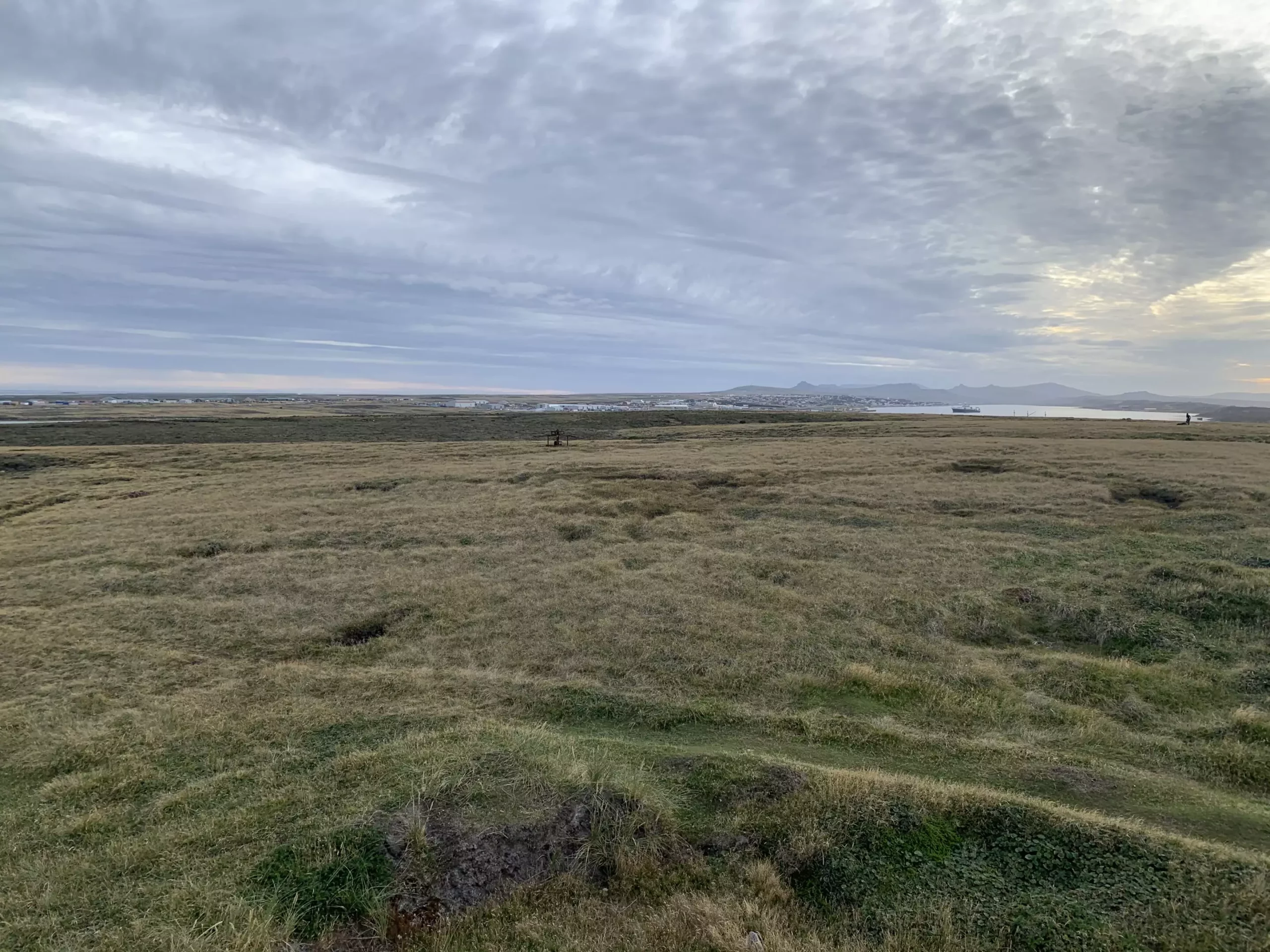The rugged and barren terrain of the Falkland Islands, known for its harsh weather and treeless landscape, has recently yielded startling discoveries that challenge long-held perceptions about this remote South Atlantic archipelago. A team led by Dr. Zoë Thomas from the University of Southampton has uncovered evidence suggesting that these islands were once blanketed in lush rainforests around 30 million years ago. Published in the journal *Antarctic Science*, this research paints a dramatically different picture of the Falkland Islands’ environmental past—one characterized by biodiversity, warmth, and dense woodland rather than the windswept grasslands that dominate the region today.
Dr. Thomas’s findings stemmed from an unexpected discovery at a construction site in Port Stanley, the islands’ capital. The chance encounter was set into motion when local knowledge shared by community members led the research team to uncover well-preserved remnants of ancient trees buried beneath layers of peat. Evidently, these whispers of historical significance are vital, illustrating how much can be unearthed when researchers connect with local communities and embrace the serendipity of scientific exploration.
The story unfolds against a backdrop of environmental curiosity and geological mystery. As Dr. Thomas recounts, the initial engagement with the community led to the unearthing of tree remains that, at first glance, appeared remarkably well-preserved. Their pristine condition sparked the imagination, compelling the researchers to question the identity of these fossils and the climate conditions that enabled such biodiversity in an area primarily unsuitable for tree growth today.
On-site excavations at Tussac House revealed a rich stratigraphy where fossils and pollen were intermingled with layers of ancient peat. The research team worked closely with the South Atlantic Environmental Research Institute (SAERI), ensuring that the delicate balance of the ecosystem was honored as they removed the samples for further study. This collaborative effort highlights the importance of interdisciplinary approaches to environmental research, especially in challenging terrains such as the Falklands.
The implications of this study extend beyond merely acknowledging the existence of a prehistoric rainforest. The findings elucidate broader climatic shifts that have shaped the landscape over millions of years. The Falkland Islands, now characterized by harsh winds and acidic soil, were once part of a warmer, wetter climate more capable of sustaining a diverse array of flora and fauna. The researchers speculate that a significant climatic transition—possibly a gradual cooling and drying—led to the loss of tree cover and the emergence of the current peatland ecosystem.
This link between climate change and ecological transformation offers a poignant reminder of the vulnerabilities within our existing ecosystems. As the world grapples with environmental crisis, the history of the Falklands illustrates that even the most extreme regions can undergo dramatic changes, raising questions about future resilience in the face of ongoing global climate shifts.
Employing advanced laboratory techniques, including scanning electron microscopy, the research team examined fossilized pollen within the layers of peat. The analysis of these microfossils allowed scientists to date the tree remains, providing insight into the species ecosystem that thrived millions of years ago. While many of the identified trees have since gone extinct, the connection to Southern Hemisphere ecosystems, including those on mainland South America, provides vital clues about patterns of seed dispersal and biogeographical interrelations that existed during that era.
This detailed research underscores the significance of fossilized pollen as a rich source of information for reconstructing ancient environments, enabling scientists to paint a picture of ecological interdependence that once flourished where little survives today.
Dr. Thomas’s exploration exemplifies the profound impact of community engagement in scientific discovery. The serendipitous nature of their findings emphasizes the importance of cultivating relationships within local ecosystems. This collaborative spirit transcends mere academic exercise, allowing scientists to tap into local knowledge that often goes unnoticed but could hold the key to unlocking ancient secrets of our planet.
As the study of the Falkland Islands continues, it serves as a powerful reminder of our planet’s dynamic environmental history and the interconnectedness of ecosystems. The lost rainforest is not just a relic of the past; it invites contemplation about the future, shedding light on what was lost and what might still be recovered through understanding and preserving our fragile environments. The Falkland Islands may be a remote outpost, but like echoes from a distant past, they offer vital lessons for our present and future ecological stewardship.

